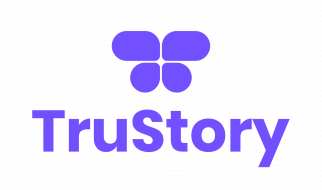FAQ on Technical Writing

Many people want to start their career as technical writers but they don?t have any idea how to start and what they should expect. In this article, I?ll walk you through a technical writer career path, so you?ll have a plan of action.
First of all, let?s speak about education. Employers generally prefer candidates with a bachelor?s degree in journalism, English, or communications. I graduated from the University with a master?s degree in Applied Linguistics and Translation. After graduation, I worked as a translator. Suddenly, technical writing became interesting for me and I started to learn more about this field, read books, communicate with technical writers and, as a result, I changed my position, and now I?m a technical writer. I?ve told my story and provided some tips that helped me in a blog post called ?From Translator to Technical Writer?.
As you can see, a technical background or a technical writing degree is not required. However, you should have knowledge in a specialized field, such as engineering, computer science, or medicine as technical writers are needed literally in all spheres like IT, aerospace, medicine, insurance, government, engineering and manufacturing, and so on. I recommend these two articles to learn more about those spheres:
- What Industries Need Technical Writers (part 1)
- What Industries Need Technical Writers (part 2)
How much do technical writers make? According to PayScale, the average pay for a technical writer is $58,570 per year and $33.58 per hour.

When you start your career as a technical writer, you?re a beginner in this field, so you have much to learn. Only practice, curiosity and the desire to improve yourself help you achieve your goals because prospects for advancement generally include working on more complex projects and leading or training junior staff.
Speaking of licenses/certifications, some associations, including the Society for Technical Communication, offer certification for technical writers. The American Medical Writers Association offers extensive continuing education programs and certificates in medical writing, the certificate will allow you to work in the medical and allied scientific communication fields.
What should you expect from office hours as a technical writer? You will work in a team with other professionals such as graphic designers, user experience designers, software developers, and testers, so your work is primarily office based, although you will visit clients, and interview SMEs, developers, and others. Speaking of small organizations, they may employ only one technical author, so you can be the only professional in this sphere.
Self-employment or freelance work is the same but you will be working at home. You can read about typical technical writing day here: ?Productive Day of a Technical Writer?.
Career progression depends on you and your interests. You can enter content development (broader area), user experience, business analysis, product/project management, and so on.
It typically begins at junior technical author level up to the position of the senior technical author. You may progress from there to project leader or editor. With more experience, you can go on to managing teams or becoming more involved in related areas such as usability, interface design, customer experience, training and so on.
Technical writing is a great sphere where you can fulfill your potential, earn enough money and get new interesting acquaintances. So, if you really want to get a technical writer position, you can start now:
- Technical Writer Interview Questions
- Resources to Get Practice in Technical Writing
- Top 7 books for Technical Writers
- Top 7 Online Courses in Technical Writing


